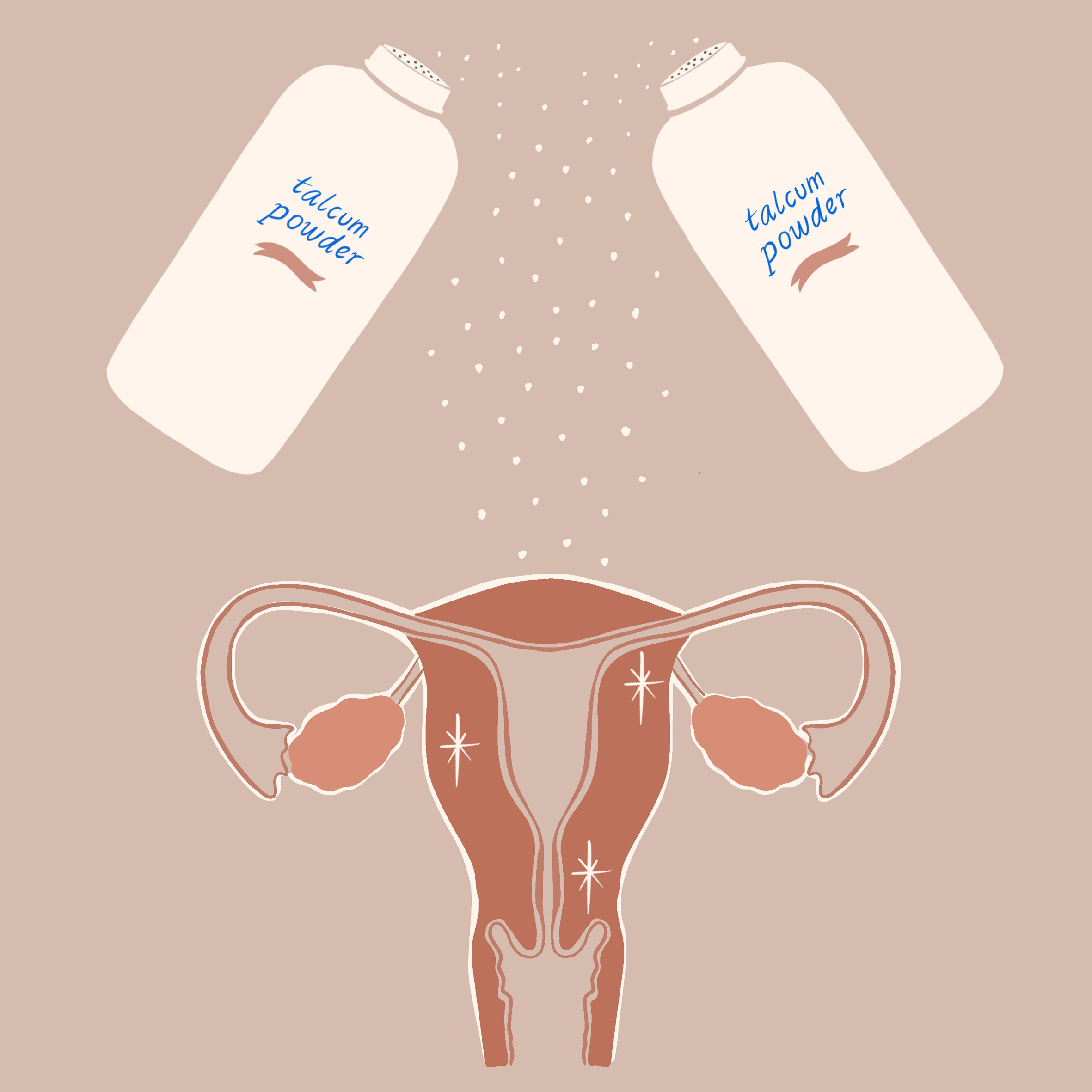Asbestos, a potent carcinogen, was found in three talc-based powdered cosmetics — two eye shadows and a children’s “toy” makeup kit — out of 21 tested recently. The research was commissioned by the environmental nonprofit Environmental Working Group and published Nov. 24 in the journal Environmental Health Insights.
Moisture-absorbing, anti-caking and silky, talc is a common ingredient in cosmetics and other personal care items such as baby powder, feminine hygiene products, deodorant, blush, lipstick, mascara, eye shadow and many others. Talc is also used in some products marketed for youth, like the children’s makeup kit that was recently tested. In 2015, EWG also found asbestos in crayons and fingerprint kits for kids that contained talc.
EWG previously identified more than 2,000 personal care products with talc sold in the past two years, more than half of which were powdered. According to EWG, talc-based powdered products put users at risk of breathing in talc and, when present, asbestos.
Both naturally-occurring minerals, asbestos and talc are often found in proximity underground, leading to the potential for cross-contamination.
Asbestos Testing Needed to Ensure Safe Cosmetics
In March, the Food and Drug Administration also found asbestos in nine out of 52, or more than 17%, of talc-based cosmetics products and baby powder it tested.
The FDA isn’t authorized to issue recalls of cosmetics and personal care products. However, in 2019, the FDA issued warnings advising consumers about specific cosmetics from Claire’s and Beauty Plus Global, all of which were voluntarily recalled by the manufacturers.
In response to the FDA’s findings, just nine days later U.S. Rep. Debbie Dingell (D-Mich.) introduced the “Children’s Product Warning Label Act of 2019,” which would require warning labels on children’s cosmetics that contain talc, unless the products are “demonstrated” to be asbestos-free.
While drugs require FDA approval, cosmetics and personal care products do not. Although the FDA says that manufacturers are legally responsible for ensuring the safety of their products, they’re not required to demonstrate safety or share safety information with the FDA.
“If asbestos is detected in a product, it would be deemed adulterated — yet there is no mandatory testing requirement for products, only voluntary screening by industry standards. … regulations are needed that give the agency the authority to remove or recall harmful products,” Tasha Stoiber, study co-author and EWG senior scientist, told MedTruth via email.
As part of its ongoing efforts to explore and address the risks of asbestos in consumer products, the FDA created the Interagency Working Group on Asbestos in Consumer Products in late 2018. The group released preliminary recommendations on testing methods for asbestos in talc and consumer products in early 2020.
Asbestos-Free Cosmetics: Resources and Recommendations
Even in the absence of adequate safety regulations, there are steps consumers can take to protect themselves — and especially to safeguard children, who are particularly vulnerable.
“Whether in a cream or powder, asbestos contamination in any personal care product is a big concern. However, powders are especially hazardous because of the risk of inhalation and the direct route to the lungs. Ultimately, we don't want asbestos in any personal care product,” Stoiber said.
“It is especially important for children to avoid products that contain talc. They are more susceptible to developing disease,” she said. “Be wary of ‘toy’ makeup kits. They are often made with cheap and potentially hazardous ingredients, like asbestos-contaminated talc, lead and chemicals linked to serious health hazards.”
Consumers who want to avoid asbestos in cosmetics can:
- Avoid all powdered products that contain talc (per Stoiber).
- Consult EWG’s Skin Deep database, which provides hazard ratings for close to 70,000 cosmetic and personal care products.
- The Red List from the Campaign for Safe Cosmetics lists chemicals of concern for five types of products: shampoo, conditioner, creams, sunscreen, color cosmetics, hair color and skin lighteners.
- The Think Dirty app helps consumers learn about potentially toxic ingredients in cosmetics while they shop.
- Moella Beauty and EcoCult offer guides to talc-free makeup brands.
- Baby powders made exclusively from cornstarch are widely available from a range of brands.
